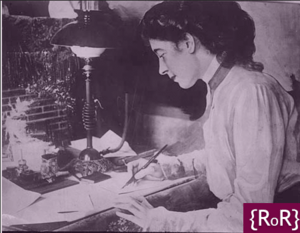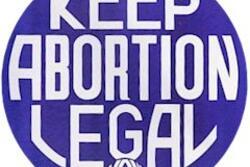When We Talk About Abortion
When North Carolina began debating bathroom laws last year, the issue was so new, so out of left field, that it was easy for liberals to take a step back and say, “We don’t have evidence of trans women assaulting other women in bathrooms. Most threats to women come from straight, cis-gender men. This law has nothing to do with protecting women; it’s purely a tool to harass transgender people.”
But sometimes an issue is so old, so shrouded in taboo, that we either don’t talk about it at all, or we’re so used to talking about it in certain terms that we never take that step back to ask, “Is this true? Do we know anyone who’s experienced this? What does the data say?”
This is particularly true of the battle over reproductive rights, where those who oppose abortion often couch the debate in religious terms, claiming to know what God wants without anyone checking their credentials for making that claim. They argue that any embryo or fetus, no matter how early, non-viable, or unwanted, is an innocent soul whose right to life automatically supersedes the rights of the imperfect adult woman carrying it—the mere fact that she has had sex makes her less worthy in some people’s eyes. Those who want to protect women’s right to bodily autonomy are then stuck either pointing to cases where the woman’s life is at stake, or cases where the woman or girl is an innocent victim of rape or incest. Even when they argue that abortion is sometimes necessary, they’re conceding the point that it is inherently immoral, a defiance of God’s will.
Here’s the thing, though: There is no condemnation of abortion in the New Testament, the Torah, or the Koran. In fact, Exodus 21:22-25 is pretty clear that the life of a fetus does not have the same status as the life of the mother, “When men fight, and one of them pushes a pregnant woman and a miscarriage results, but no other damage ensues, the one responsible shall be fined…But if other damage ensues, the penalty shall be life for life, eye for eye, tooth for tooth, hand for hand, foot for foot, bruise for bruise.” (JPS Torah Commentary).
The ancient rabbis and later commentators interpreted this to mean that while a fetus has a potential for life that should be respected, it’s still only a potential; the woman’s well-being matters more. The Mishnah argues, “In the case of a woman struggling to give birth, one dissects the child in her womb and draws it out limb by limb because her life comes before the child’s life. Once the greater part of the child has emerged, we do not do so, because we don’t sacrifice one life to save another” (Mishnah Ohalot 7:6). Rashi clarifies, “As long as [the child] hasn’t emerged into the world, they are not a person, and it is permitted to kill them to save the mother. But once the head has emerged, we can’t harm [the child] because it as if they are a person, and we don’t sacrifice one life to save another” (Commentary to Sanhedrin 72b). Maimonides agrees, “…It is permitted to abort the child in her belly, either through drugs or by hand, because [the child] is like one who pursues her to kill her. But once the head emerges, we don’t do harm because we don’t sacrifice one life for another, and this is the nature of the world” (Mishneh Torah Rozeah v’Shemirat Nefesh 1:9).
While a few contemporary rabbis disagree with this reasoning, most uphold it, and the Reform Movement, the Conservative Movement, and the Reconstructionist Movement have expanded on it, ruling that if carrying a pregnancy to term will cause a woman psychological or emotional harm, she can choose to have an abortion. And all three movements have worked with the Religious Coalition for Reproductive Choice (alongside the Episcopal Church, the Unitarian Universalist Association, Catholics for Choice, and many others) to make it clear to lawmakers that while abortion opponents may use religious language, they do not represent all people of faith.
So what happens if pro-choice activists refuse to cede the moral high ground? What happens if we reject the terms of abortion opponents and say, “This is potential life, but it’s not yet life; let’s talk instead about the morality of denying women the basic human rights of health and safety?” Because the choice not to continue a pregnancy is about so many other choices. The choice to finish school. The choice to keep your dream job. The choice to deal with physical or mental illness by recognizing you need to put yourself first. The choice to focus on the kids you already have. The choice not to watch a child suffer and die of Tay-Sachs. The choice to leave an abusive or unfulfilling relationship. By taking away a woman’s ability to choose the course of her life, you take away what allows her to be a person.
It’s not a coincidence that many conservative Christian groups suddenly began obsessing about abortion at the height of the women’s movement when reproductive rights opened the door to real independence and freedom for women. As with the bathroom laws, this has never been about who they want to protect. It’s about who they want to control. And although reproductive justice is hardly a new issue, maybe we’re finally ready to debate it on different terms.
Love Lisa's piece? Let us know and get an alert each time the next Reading Our Rights post goes live!








This piece is helpful about a difficult topic. I base my opinion on the fact that my great grandmother died giving herself an abortion. She had 5 children who lived; all of them were affected, and her husband's life was affected.
I base my opinion on the dead bodies I saw at the abortion providing hospital where I worked.